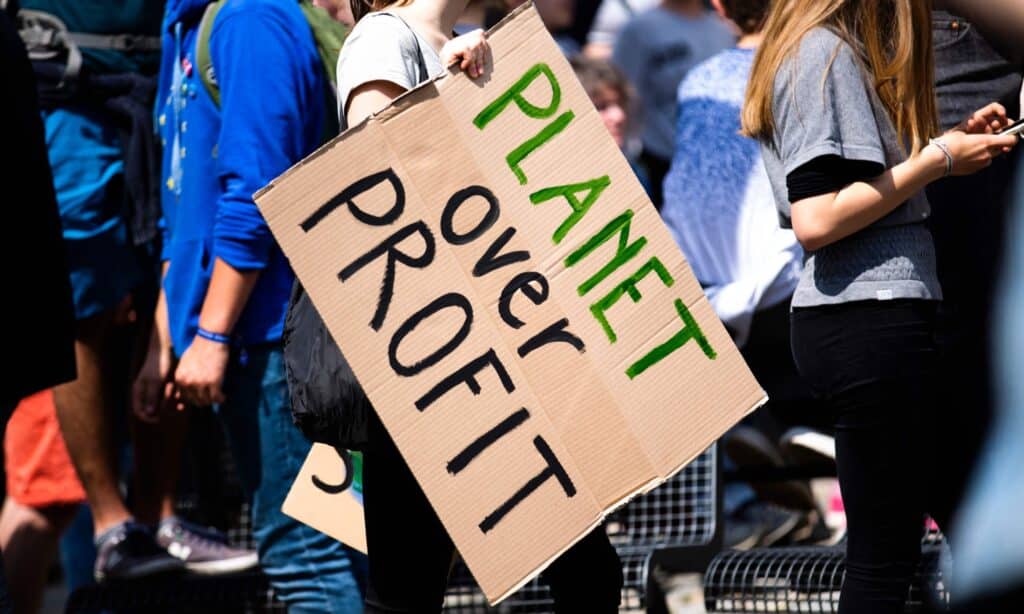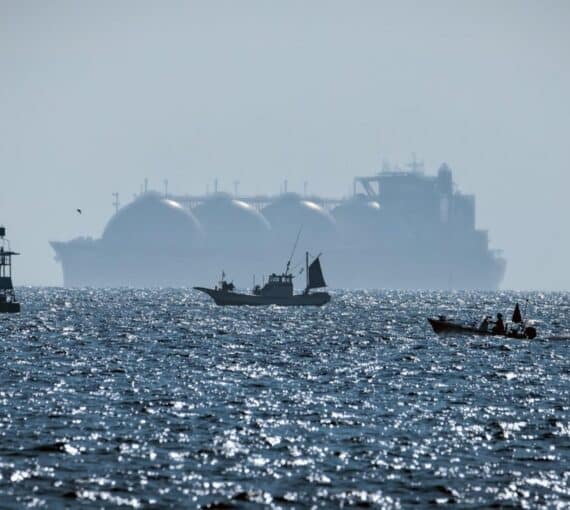
This op-ed shares details of a new legal opinion that examines the decision to build and promote gas production in British Columbia and what this means for the rest of the world. (Photo: Markus Spiske via Unsplash)
As governments convene for the COP28 climate summit in Dubai this week, the first “global stocktake” shows we aren’t on track to meet the Paris Accord’s goal of limiting average global heating to 1.5 C.
In a year marked by record-breaking heat, unprecedented wildfires and other climate disasters that are “reversing global development at unprecedented rates,” insights from the UN Intergovernmental Panel on Climate Change (IPCC) and the International Energy Agency (IEA) on the need to halt fossil fuel expansion haven’t compelled governments to accelerate phasedowns of coal, oil and gas production.
Why is humanity failing to face this existential threat?
One reason is that each government considers oil and gas projects in isolation from their cumulative impact on our life-support system. They only see the benefits: jobs, private investment, government revenues. They don’t consider the climate-altering impacts of burning exported fuels because those aren’t counted in domestic emissions reporting.
Each government considers oil and gas projects in isolation from their cumulative impact on our life-support system. They only see the benefits: jobs, private investment, government revenues. They don’t consider the climate-altering impacts of burning exported fuels because those aren’t counted in domestic emissions reporting.
The David Suzuki Foundation asked international law scholar Jorge Viñuales to delve into one legal decision to see what lessons it would hold and how governments might change their approach to new fossil fuel developments.
The legal opinion finds that state actors must consider a range of relevant obligations under international climate change treaties, human rights law, investment agreements and trade law when assessing whether support for energy projects during a climate crisis is legitimate.
It uses the LNG Canada project as a case study. With the 670-kilometre Coastal GasLink pipeline carrying fracked gas to a liquefaction plant in Kitimat on the B.C. coast, LNG Canada and its supporters claim the 14 million tons of liquefied natural gas the facility will produce will have a positive impact on climate change outcomes.
With the 670-kilometre Coastal GasLink pipeline carrying fracked gas to a liquefaction plant in Kitimat on the B.C. coast, LNG Canada and its supporters claim the 14 million tons of liquefied natural gas the facility will produce will have a positive impact on climate change outcomes.
The research, meanwhile, indicates the opposite: LNG is not a climate solution.
In a world dangerously off track to meet global temperature goals, state conduct that supports, enables and promotes gas production and transport fails to meet the level of due diligence required under international law. (With LNG Canada, international human rights law violations have been invoked in relation to pipeline construction.)
Further, investments that support fossil fuel infrastructure instead of renewable energy inevitably lock in higher emissions and are inconsistent with Paris commitments, as well as IPCC, IEA and global stocktake recommendations.
This is the most credible climate science and energy forecasting available to us, all in agreement that the world cannot afford new fossil fuel development.
This is the most credible climate science and energy forecasting available to us, all in agreement that the world cannot afford new fossil fuel development.
To avoid further state decisions that lock in fossil fuel expansion, COP28 outcomes must be explicit: systems transformations to build climate resilience do not include coal, oil and gas investments.
This means all state support that enables fossil fuel expansion — via public financing or infrastructure provision — must end. For LNG Canada, the legal opinion finds Canada’s government failed to meet its climate responsibility.
Unsurprisingly, the problem Viñuales documented in Canada occurs in other nations, too. Despite Paris Agreement and G20 pledges to eliminate fossil fuel subsidies, global public support for the sector amounted to US$7 trillion in 2022.
This is the most critical decade for climate action. With an oil executive heading COP28, the fossil fuel industry’s role in perpetuating the climate crisis through greenwashing, disinformation and deception will be front and centre. Governments that continue to facilitate and enable fossil fuel expansion on behalf of industry are a huge part of the problem.
Conventional oil and gas resources approved for development in 2023 were about 25 per cent higher than in 2022. In fact, fossil fuel investment in 2023 was “more than double the levels required to meet much lower demand in the net-zero emissions by 2050 scenario.”
The evidence of human rights violations by corporations and governments in relation to fossil fuel activities makes clear that as the climate crisis reaches a tipping point, global human rights are also at unprecedented risk.
The credibility of COP28 negotiations must depend on whether parties effectively respond to the global stocktake findings by accelerating actions promised at COP26 and COP27 and committing to rapidly and equitably phasing out all fossil fuels, complete with stringent and comprehensive targets.
The credibility of COP28 negotiations must depend on whether parties effectively respond to the global stocktake findings by accelerating actions promised at COP26 and COP27 and committing to rapidly and equitably phasing out all fossil fuels, complete with stringent and comprehensive targets.
With federal Environment Minister Steven Guilbeault’s appointment as facilitator to the COP28 presidency, Canada will have a special role to play in building consensus to accelerate a global transition away from fossil fuels.
As the first country to release a framework for phasing out inefficient fossil fuel subsidies and committing to capping emissions from the oil and gas sector after decades of climate inaction, Canada is well-positioned to assume global leadership in course correction.
As the legal opinion illustrates, Canada and other Paris parties must exercise the full due diligence called for in the context of a climate crisis and cease all public financing and subsidies that further lock communities into the highly volatile and sundowning industries of oil, coal and gas. Or, accept that they are all complicit in perpetuating an ever-worsening existential threat to all humankind.
This op-ed was originally published in the National Observer.
Related projects
Always grounded in sound evidence, the David Suzuki Foundation empowers people to take action in their communities on the environmental challenges we collectively face.

